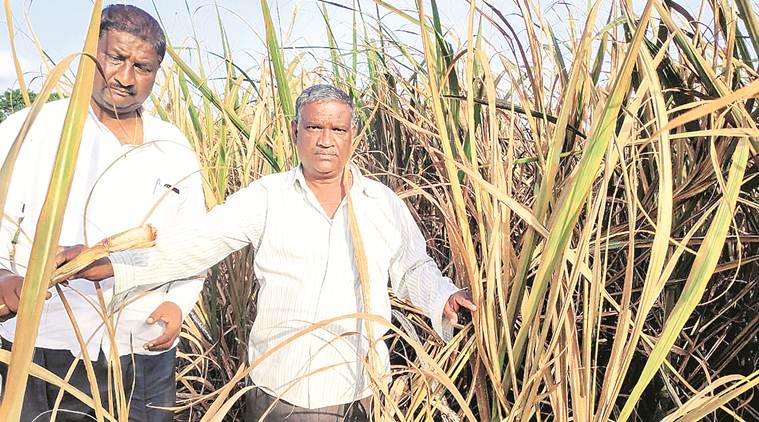 The lockdown had been imposed came when the 2019-2020 cane crushing season was in its last leg in Maharashtra. (Representational Image)
The lockdown had been imposed came when the 2019-2020 cane crushing season was in its last leg in Maharashtra. (Representational Image)
With nearly 1.5 lakh sugarcane harvest labourers, mainly from Beed and a few other districts, stranded at sugar mills in western Maharashtra and parts of Karnataka, the Maharashtra government on Monday discussed the possibility of providing them relief by enabling their journey to their home districts following medical check-ups.
Deputy Chief Minister Ajit Pawar discussed the possibility with officials after Beed Guardian Minister and Minister for Social Justice Dhananjay Munde wrote to Chief Minister Uddhav Thackeray on Monday seeking that these workers be allowed to return home where they would have to undergo a mandated period of quarantine.
For the workers who are now facing the prospect of waiting until April 30 before they can return home, the longer lockdown could mean costly delays in field preparatory works ahead of the kharif season on their own farm land.
Through Sunday evening, multiple leaders raised the issue with the state government. “The Maharashtra Oos Todni Kamgar Sanghatana cane workers’ union wrote to the chief minister, and top union leaders reached out to NCP chief Sharad Pawar and Dhananjay Munde. We are hopeful that an early decision will be taken so that the labourers’ kharif preparations are not affected,” said Mohan Jadhav of the Sanghatana.
Data collated by the Maharashtra sugar commissionerate shows that 1.36 lakh harvesters are still waiting at 36 mills in nine districts of the state, mostly in Pune, Satara, Sangli and Kolhapur. As many as 96,017 of these labourers are housed in the fields within the command area of the mills while 35,415 are housed within the premises of the mills.
The lockdown had been imposed came when the 2019-2020 cane crushing season was in its last leg in Maharashtra. Of the 142 mills crushing cane this season, only about 16 were operational and continued to operate as sugar is listed among essential commodities.
For the migrant workers, the lockdown and ban on travelling created a situation none had seen before, fearful of the spread of the disease, far away from their children or parents and also unable to return home as the district borders were sealed.
“These workers have either been kept in isolation near the sugar mills or have been stopped at district borders and quarantined,” Munde said in his letter to Uddhav. The labourers’ bullocks and other animals are also with them, with fodder supply for the animals becoming a challenge in many parts.
A cooperative sugar miller from Kolhapur said that on an average, they are providing around 50 tonnes of fodder for the animals housed within their area. Field officers have been appointed to look after the basic needs of the labourers. “The labourers had expressed their desire to go home, but we have explained the situation to them,” the miller said.
Jaiprakash Dandegaonkar, chairman of the Maharashtra State Cooperative Sugar Factories Federation, said a delay in kharif land preparations would pile on further anxiety for the community. “Mills are looking after the labourers but they want to go back home,” he added.
Officials said the issue is under consideration and a decision could come shortly.
The November-April crushing season ends just before the start of field preparations for kharif. “Not even a single cane worker has tested positive, and their 14-day isolation period is over, so they should be allowed to resume other normal agricultural activities,” said Jadhav.